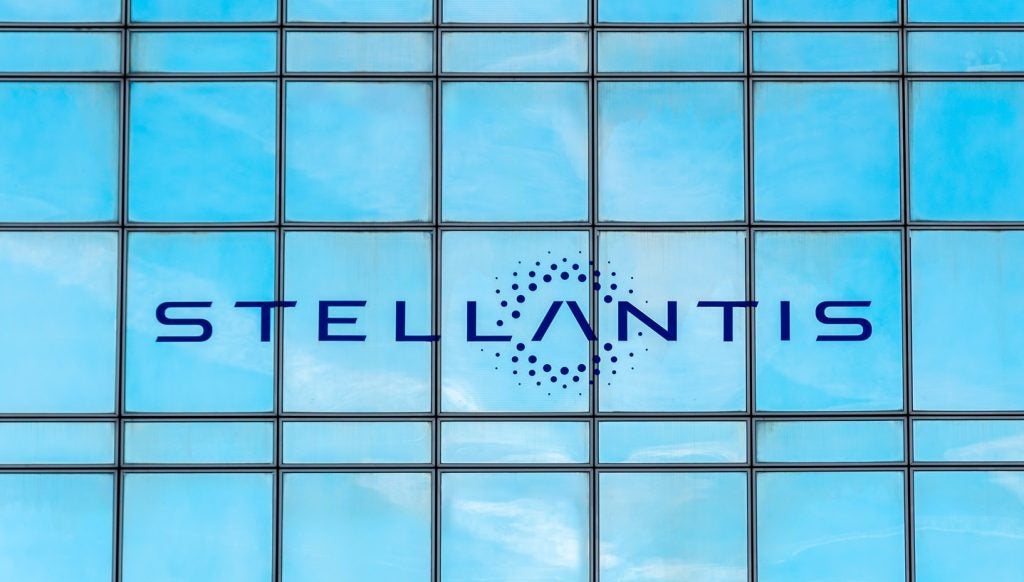
Key industry figures look at the topics, issues and challenges that motor finance has to look forward to in the new year
Richard Jones, managing director, Black Horse: market moving to a much more sustainable position
Across the industry we saw a strong start to the year with record new car sales in the first quarter, but after continued growth over the past few years, enabled largely by PCP and low interest rates, the market then evened out through the remainder of 2017.
Potential uncertainties presented by the global economy have influenced consumer confidence, and we have seen both personal and business customers delaying bigger-ticket purchases; collectively new registrations are down on last year. However, this natural levelling-off was to be expected and I believe this correction in new car sales means that the market is moving to a much more sustainable position. The used car market remains robust, although we’ve seen a greater decline in residual values than experienced last year.
This year we have also seen a spotlight directed at the industry as part of broader consumer and regulatory interest in motor finance. I welcome this as an opportunity to demonstrate our expertise and the value our businesses bring to our customers and the UK economy, and to demystify some of the assumptions that are made. As lenders and dealers, we have a duty to conduct ourselves in a professional and responsible manner, enabling a fair and transparent car-buying journey, centred on the customer.
With the ongoing uncertainties in the economy and apparent confusion over fuel choice, particularly diesel, it is difficult to confidently predict exactly where the market will go in 2018. There is certainly work required to further educate customers on the range of fuel types available and the range of different finance options available to best meet their individual needs.
How well do you really know your competitors?
Access the most comprehensive Company Profiles on the market, powered by GlobalData. Save hours of research. Gain competitive edge.

Thank you!
Your download email will arrive shortly
Not ready to buy yet? Download a free sample
We are confident about the unique quality of our Company Profiles. However, we want you to make the most beneficial decision for your business, so we offer a free sample that you can download by submitting the below form
By GlobalDataI do believe the used car market will remain buoyant, whilst the new car market is likely to experience further small contractions in the coming months.
In the near term, it is about building sustainable business models and achieving success in a slightly smaller sales market. That means pursuing an even greater focus on customers, with costs in mind.
Adrian Dally, head of motor finance, Finance & Leasing Association: we should continue to do the best for our customers
The motor finance market spent much of 2017 under intense media scrutiny after the Financial Conduct Authority (FCA) announced an exploratory piece of work to get to know the sector better. Although the regulator made clear that it had no preconceptions about specific problems or whether any market intervention would eventually be required, some of the national media gave a different impression.
In response, we conducted an intensive media briefing programme to explain how the industry works, and where it fits into the economy – and we also spent a lot of time talking to the FCA and the Bank of England to ensure they had all the information they needed about our market.
In June’s Financial Stability Report, the governor of the Bank said he was “relatively sanguine about the exposure of the banking system [to motor finance]”, and that the effect of a stress test – going far beyond anything seen historically – was “pretty negligible from a bank perspective”.
Alex Brazier, executive director of financial stability at the bank, also noted that the true burden of car finance on household expenditure is actually very low – only 1.2% when the optional balloon payment is excluded. The topic of motor finance was barely mentioned in November’s Financial Stability Report.
The FCA also now agrees that the growth of PCP lending simply reflects the shift in consumer appetite away from outright ownership towards usage of an asset. And although this recognition is welcome, we are not complacent. As the third-largest market in the consumer credit sector, we should continue to do the best for our customers.
This is why the FLA has been pushing forward with a package of initiatives to boost skills and professionalism in the industry. Our aim is to offer training for every level of expertise, and we took great strides on this during 2017.
For new entrants to the industry, we sought government approval for a Motor Finance Specialist Apprenticeship Standard, and worked closely with members, brokers and dealers to design a curriculum which suited the industry’s needs. We will launch the new standard in the new year.
Next, our new Specialist Automotive Finance Essentials scheme will provide module-based training for industry newcomers, which can then be followed by our well-established and popular annual online SAF test.
Completing the suite there is SAF Advanced, a more demanding type of training for those who are building their careers in the industry. And that is what we want to provide – attractive career training for finance professionals.
Neal Coleman, head of asset risk, Alphabet (GB), looks ahead to 2018
Diesel is still the best choice for many fleet cars and commercial vehicles, and the government’s own figures show it expects diesels to dominate fleet sales for at least the next few years.
Diesel still has an indisputable advantage over other fuel types, in terms of overall costs and longevity, especially for larger, heavier vehicles and higher business mileages. The key is to ensure you have got the right powertrain for the vehicle user and the journeys they are making.
HMRC’s impact assessment on November’s Budget increase to the diesel BIK supplement assumes around two-thirds of new fleet cars will still be diesels going forward from 2020. Therefore, there is still every reason for companies to choose diesel for their ‘workhorse’ car roles.
For LCV operations we expect to see increasing alternative options become available over the next year or so as commercial vehicles start to catch up with the ULEV technology we are now seeing in passenger cars. So, while the long-term trend towards 2040 is solidly towards zero- and ultra-low-emission vehicles, diesel will remain an important part of the mix.
Where the market is seeing accelerating change is around smaller vehicles, lower business mileages and occasional business users. Here, the rapid proliferation of drivetrains offers fleet operators and their employees more choice than ever before, from pure EVs through to range-extenders, full and mild diesel and petrol hybrids, to increasingly green combustion engines. Customers can now combine those choices with mobility solutions from contract hire to flexible rental and advanced corporate car-sharing.
Leanne Christmas, head of compliance, Alphabet (GB): Getting read for GDPR takes time
With the new General Data Protection Regulation (GDPR) coming into effect in May 2018, organisations and fleet decision-makers only have a few months to ensure all of their fleet and mobility operations are in line with the new GDPR requirements. To ensure compliance, operators will need to get permission to collect and use any personally identifiable data, including that gathered from telematics devices. Drivers should give explicit consent in the form of a statement or an affirmative action, as ‘pre-ticked’ boxes will no longer be sufficient. Fleet managers must clearly explain what data they are gathering and how it will be processed.
A key challenge will be establishing who is liable for data breaches. From manufacturers and lease companies to fleet managers, everybody will need to understand their role in ensuring compliance with GDPR. This will include updating some outdated tracking systems in fleet vehicles that could be in breach of the new rules, as well as ensuring processes are in place to give drivers access to their data upon request.
It is clear that getting ready for GDPR requires time, resource and investment, but given the significant penalties for serious breaches and the fast-approaching May 2018 deadline, fleet decision-makers should not delay in preparing their business and its operations for GDPR.
Rupert Pontin, director of valuations, Cazana: A summary of the used car market for 2017
The past 12 months have seen a significant change in the way the used car market has performed, with a marked increase in stock being a significant factor. The volume of cars coming into the market has been affected by high levels of pre-registered cars feeding into the late plate market. This has been coupled with substantial volumes of ex-PCP cars reaching the end of 24- and 36-month contracts. The latter age group has also been boosted by new business in the contract hire and lease market, resulting in more ex-fleet cars returning to the wholesale sector.
With volumes increasing, the dynamics of the supply and demand position have changed, with trade and subsequently retail customers finding themselves with more choice when looking to buy a used car. This has meant wholesale activity has been more selective as customers seek to find the best-specification low-mileage cars with the most comprehensive history. This has resulted in a faster depreciation of used values, although it is worth noting that the increased depreciation is market sector and brand-related, and as such certain cars have been less affected than others.
2017 could not pass without mention of the diesel position, which has become a major talking point in the national press. With new car sales severely affected by the lack of clear taxation guidance from the government and a plethora of ill-informed pundits demonising the fuel type, it is perhaps surprising that demand for used diesels remains only marginally affected. The clarification of the government’s position in the recent Budget will hopefully go some way to stabilising the market, although the lack of penalties for older, more-polluting engines in the chancellor’s announcement was a missed opportunity to drive people to cleaner engines.
Throughout 2018 the new car market will suffer a further decline in sales, although it is likely that used car sales will see a slight improvement. Innovative finance deals will help retail buyers find their way into the growing number of used cars coming to the market. The diesel debate will settle and demand for alternative-fuel vehicles will improve further, although technological advances will mean selecting the right car will be challenging for the retail consumer.
Generally speaking, 2018 should be a reasonable year for those companies that are proactive and seek the very best in scientific-based insight and intelligence to identify new opportunities and maximise return on investment for the asset. At the same time, retail buyers will find they are being catered for in the best way possible with choice of both product and funding schemes.
Oliver Mackaness, director, Billing Finance: 2018 more about consolidation than growth
Well, 2017 has certainly been an interesting year for Billing Finance. Not only have we won several awards, but the company has continued to grow. During the last 12 months we strengthened our management team by appointing heads of finance and operations, compliance and collections. We have increased our lending by approximately 15% more than the previous year, and now employ over 60 full-time members of staff.
Growth brings its own challenges. Having always relied purely on manual underwriting, in March we introduced a level of automation to make our underwriting quicker and more consistent. It is important that as we grow bigger our levels of arrears do not grow too.
Availability of funds is also key, and we have spent a significant amount of time finding the right partner. Hopefully, more news about this to come soon!
Growing is not just a case of blowing more air into a balloon. It also requires adding maturity. Hence, 2017 has been an important year for analysing our business, reviewing our systems and processes, and outsourcing some services to specialist companies. We have spent a considerable amount of money strengthening our cybersecurity and preparing ourselves for GDPR next year.
There is a lot of uncertainty in the air regarding the economy and the effects of Brexit. We believe that in this environment, change is necessary if you want to succeed. It is also important to put our customers at the heart of everything we do. This is why we have decided to introduce a new fixed-APR product, with no document fees and only a £1 option-to-purchase fee. We have also decided to drop all letter and late payment charges for our customers from 1 January 2018.
2018 will be more about consolidation than growth. We want to work with our loyal brokers and perhaps add a few more to the panel. We want to raise the profile of Billing Finance and be better and more efficient at what we do.
Every morning, I walk round the office, say good morning to everyone and have a chat to see how they are doing. No matter how much we grow, our customers will continue to expect this personal touch too.







